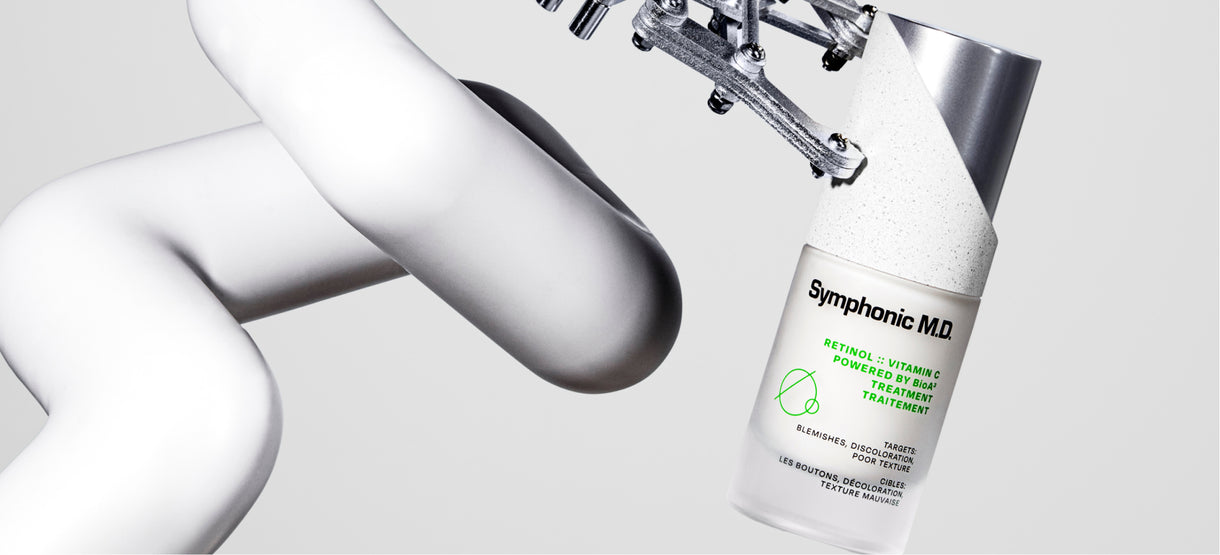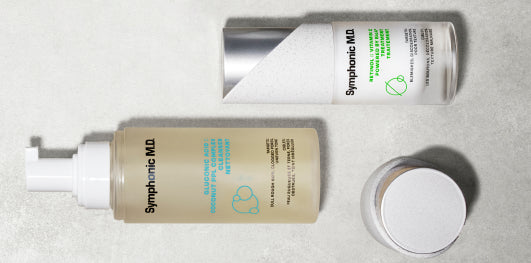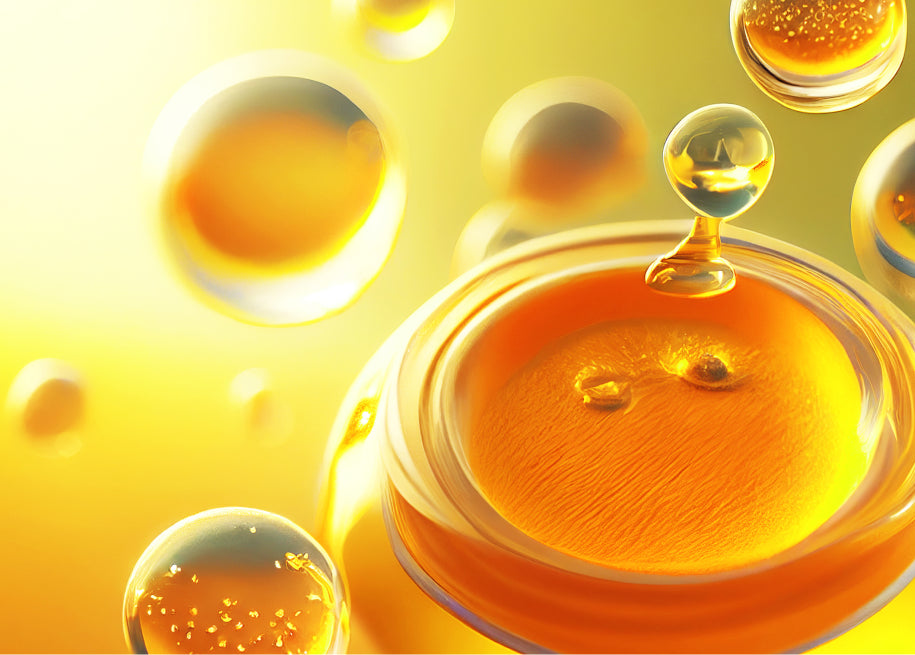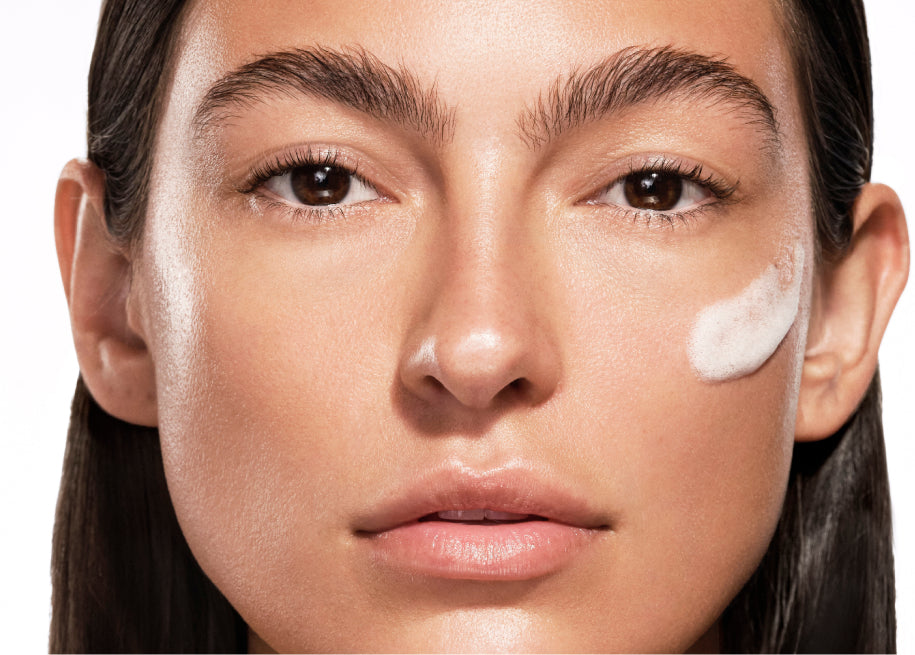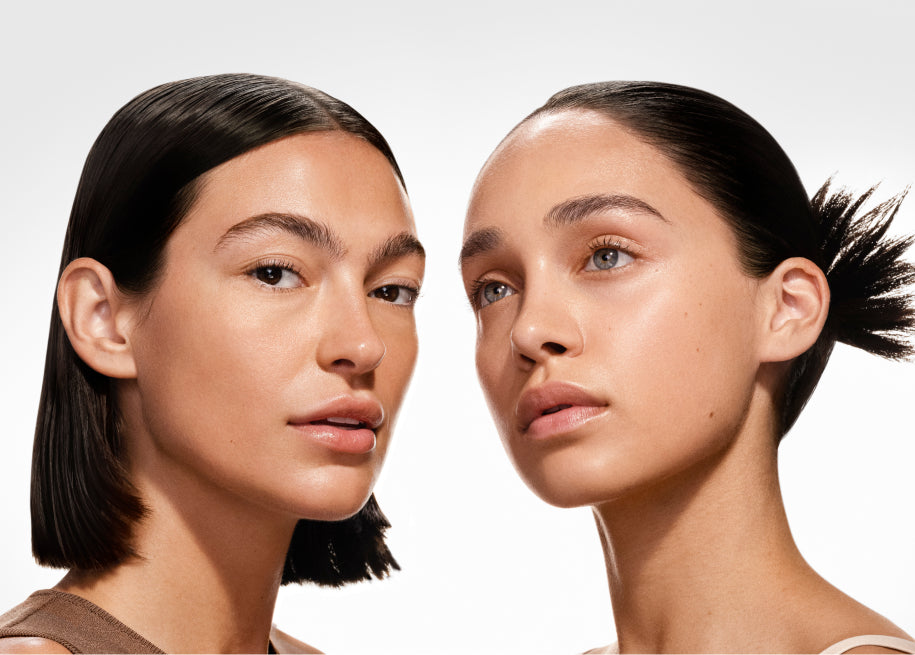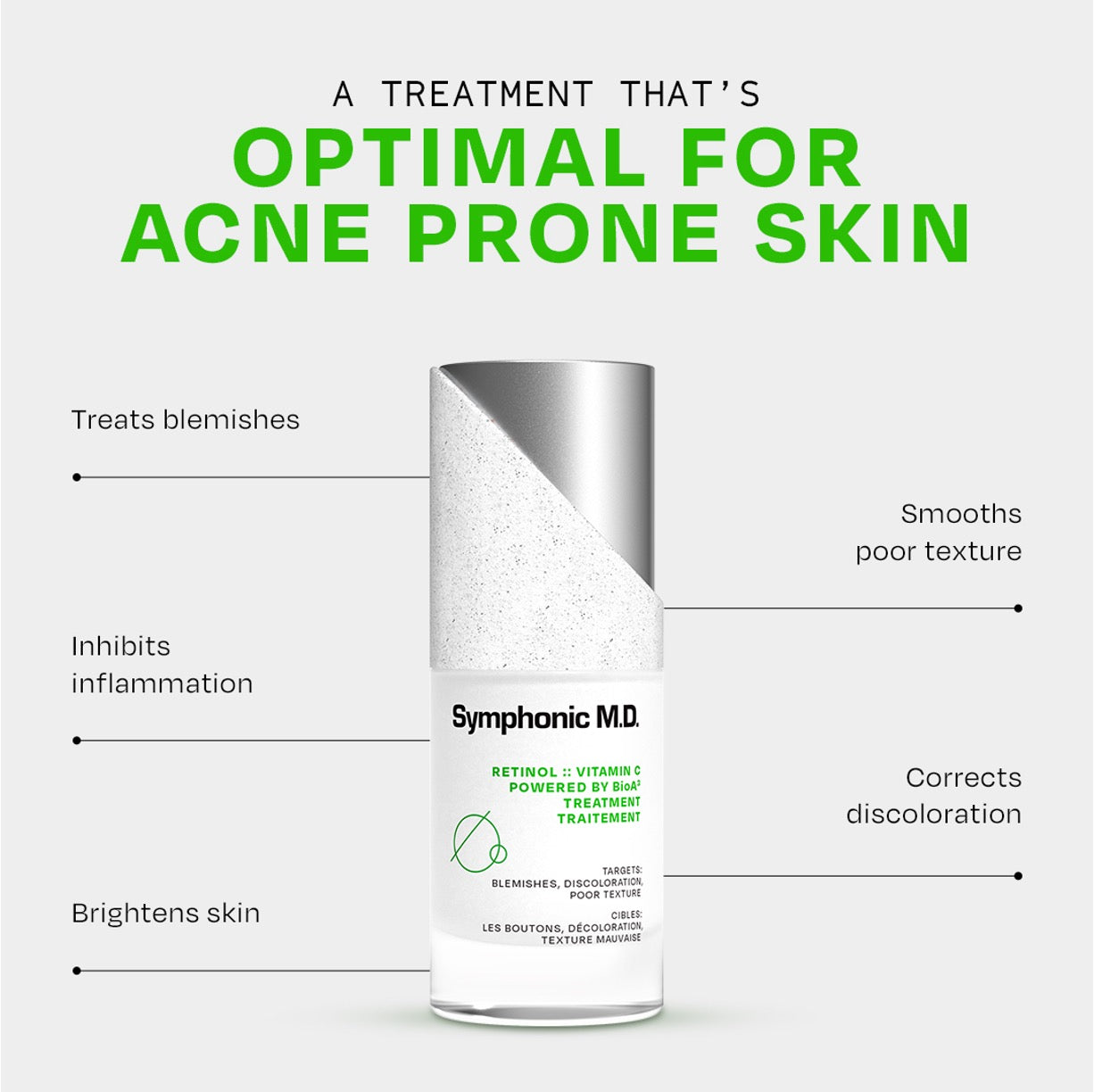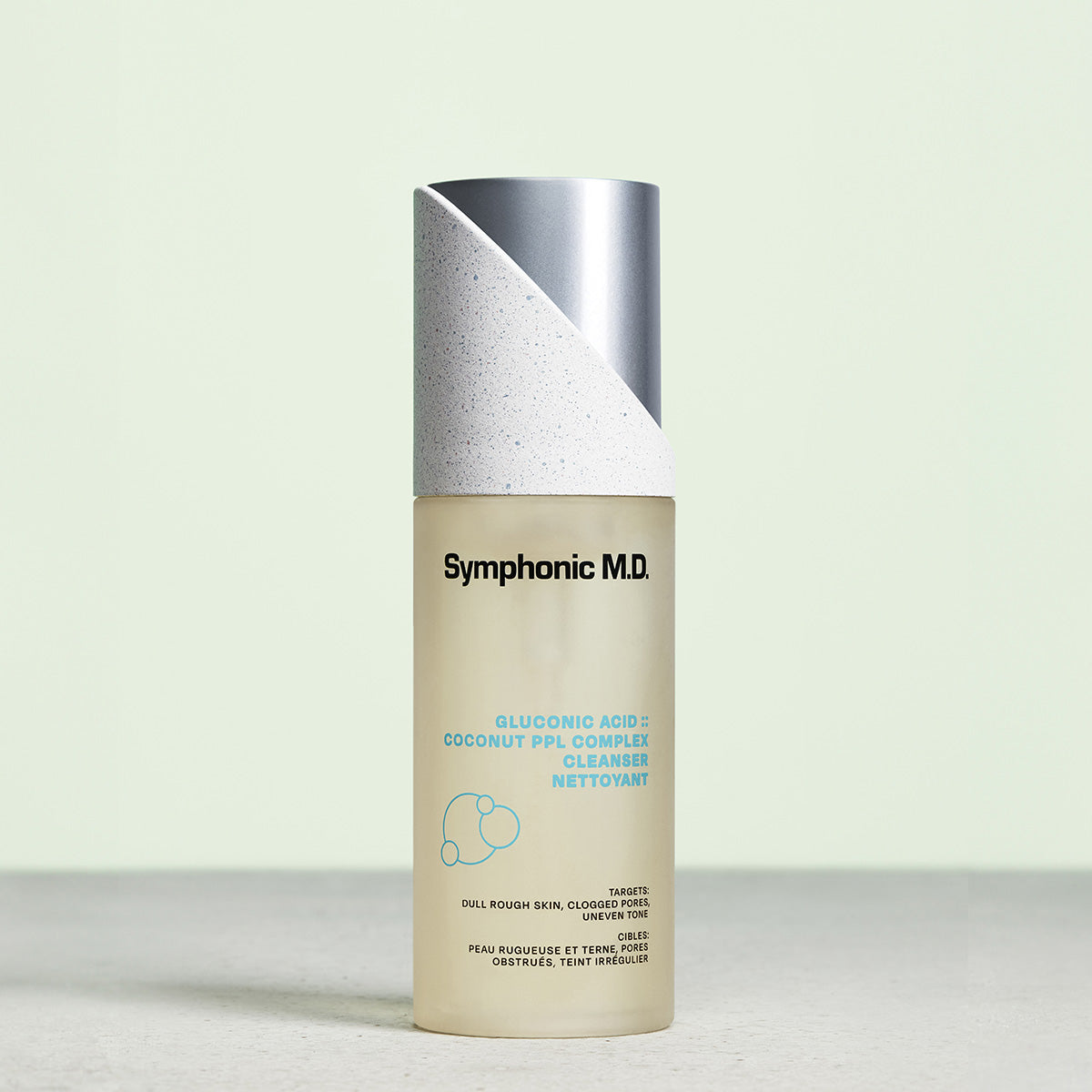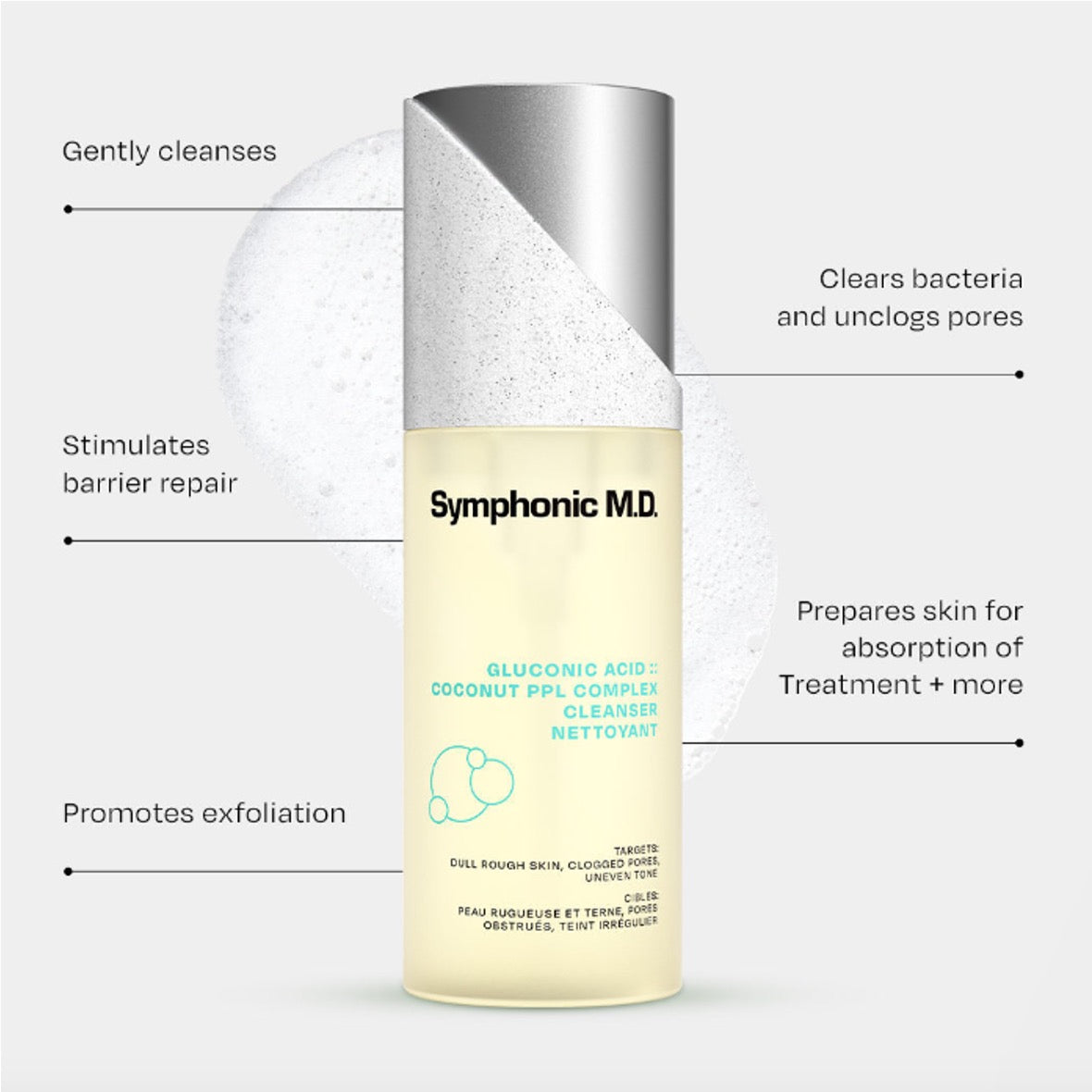What are vitamin C and retinol?
Vitamin C and retinol are active ingredients in skincare. They’re the elements of your moisturizer, serum, or cleanser that make them so effective.
Both ingredients are popular because they improve the texture, tone, and appearance of skin. But they work in slightly different ways.
- Vitamin C reduces the appearance of aging by keeping skin firm and taut. It also protects against environmental damage.
- Retinol speeds up cell renewal in your skin, making it less prone to acne, fine lines, and wrinkles.
Sound good so far? Let’s get into the science …
What is retinol and how does it work?
Dermatologists have called retinol the most effective rejuvenating ingredient in skincare — period. It reduces acne, hyperpigmentation, and signs of aging.
Retinol encourages your skin to renew and replace skin cells more frequently. You’ll see fewer lines and a more even skin tone.
Retinol is derived from vitamin A. It’s almost unique because it has a small enough molecular structure to penetrate the outer layers of skin. Once it’s been absorbed deep inside the skin, it turns into retinoic acid, boosting collagen production and cell turnover.
However, retinol can have side-effects. Some people find that it can cause skin irritation, especially when you first start using it. You should introduce retinol to your skincare routine gradually and carefully.

Benefits of retinol
- Increased skin cell turnover. Retinol encourages your skin to renew and replace skin cells more frequently. You’ll see fewer lines and a more even skin tone.
- Fewer clogged pores. Retinol makes your skin cells and keratin debris less likely to clump together. It also reduces sebum production. Result: less chance of breakouts!
- Increased collagen production. Retinol boosts production of collagen, the element which makes your skin look plump and firm.
- Reduced hyperpigmentation. As your skin cells are replaced more frequently, old skin gets shed faster. Retinol can even reduce the appearance of sun damage and dark spots.
Anti-aging
We can’t talk about retinol without talking about anti-aging. Skincare products with retinol have completely revolutionized how we treat aging skin.
Retinol is incredibly effective at making skin look younger. Faster skin cell turnover means minimal lines and wrinkles. Boosted collagen production means firm, resilient skin.
And the best part? Because these changes happen on a cellular level, deep within the layers of skin, they actually last over time. Retinol changes the way that your skin cells behave, making your skin look younger over time.
Acne treatment
Retinol has also transformed acne management. As we all know, pimples don’t just happen to teens. Anyone can experience acne if they have a build-up of sebum and dead skin cells.
Retinol unclogs pores by controlling the amount of sebum your skin produces, and clearing away dead skin cells fast. It also has an anti-inflammatory effect — reducing the redness and swelling that comes up around a pimple.
If you’ve struggled with acne in the past, retinol can even minimize acne scars by helping your skin to heal faster and more thoroughly.
Skin renewal
Retinol’s secret weapon is skin renewal. Its power to regenerate skin is what makes it so effective against aging, acne, and sun damage.
It prompts your skin to do three things:
- Clear away dead skin cells
- Keep skin cells healthy
- Grow new, younger skin cells
All that adds up to glowing skin with an even tone and texture.
What is Vitamin C and How Does it Work?
Vitamin C is a skincare classic for a reason. Also known as L-ascorbic acid, it’s a natural antioxidant that prevents and repairs damage to the skin.
One of Vitamin C’s most powerful anti-aging effects is boosting collagen.
Your skin is constantly being bombarded with molecules called “free radicals”. These are unstable molecules that cause signs of aging. But Vitamin C neutralizes free radicals to protect your skin. Not only that, but it can also repair skin damage.
Benefits of vitamin C
- Reducing inflammation to keep your skin smooth and calm.
- Boosting collagen so that your skin stays firm and elastic, whatever age you are.
- Correcting hyperpigmentation to give you an even skin tone.
- Protecting skin against free radicals, pollution, sun damage, and other environmental stressors.
Promotes collagen production
One of Vitamin C’s most powerful anti-aging effects is boosting collagen.
Collagen is the stretchy, strong ingredient that makes skin firm and holds joints together. The more collagen you have, the younger your skin looks, with fewer fine lines and wrinkles.
Vitamin C works with enzymes called prolyl and lysyl hydroxylase to help stabilize collagen molecules. This helps your skin in three ways:
- It encourages your skin to produce more collagen.
- It makes sure that the collagen is high quality and has a strong structure, keeping skin firm and plump.
- It protects collagen fibers from damage caused by free radicals.
Provides photoprotection
If you want youthful skin, it’s recommended to stay out of the sun as much as possible and wear sunscreen every day. But is that enough?
Vitamin C is another vital ingredient in fighting sun damage.
- As an antioxidant, it neutralizes the free radicals that are produced when your skin is exposed to UV light.
- It reduces inflammation, redness, and hyperpigmentation caused by sun exposure.
- It regenerates vitamin E, another antioxidant that protects skin from aging. Your vitamin E levels actually go down after UV light exposure, so vitamin C can help boost them again.
Vitamin C is no replacement for strong SPF sunscreen. But it can support your skincare routine and give you extra protection against sun damage.
Reduces hyperpigmentation
Vitamin C has the power to reverse some types of skin discoloration.
Hyperpigmentation is when your skin has darkened patches. You might have heard these called dark spots, age spots, or melasma — or you might just be concerned about uneven skin tone. It’s caused when your skin overproduces melanin.
But vitamin C can fight back. It stops your body from producing tyrosinase, which is needed for melanin production. Result: those dark spots won’t stay dark. If you use vitamin C as a regular part of your skincare routine, you should see improvements in skin clarity and tone.
Should I use retinol or vitamin C?
Whether to use retinol or vitamin C depends on your personal skincare goals. But you also have the option to use both ingredients!
Vitamin C is best for brightening and improving skin clarity, while retinol is the most powerful anti-aging ingredient. Many people want both those things for their skin.
Can I use retinol and vitamin C together?
You can use retinol and vitamin C regularly in your skincare routine. When they’re used together, you may see results even faster.
However, both ingredients can be irritating if you have sensitive skin. Choose products with a high “tolerability” — in other words, products that your skin can cope with. Look for slow-release or deep-moisturizing effects to reduce the risk of irritation.
The latest generation of skincare combines vitamin C and retinol into one moisturizing, skin-safe product — giving you the best of both worlds, without adding extra steps to your routine.
Risks of using retinol and vitamin C together
Like with any other active ingredient, you should introduce retinol and vitamin C to your skincare routine gradually. Start small and slow, then see how your skin responds.
You can also protect your skin by choosing products carefully. Look for moisturizing formulas which are designed to soothe skin.
Just be aware that both ingredients are powerful and they can even magnify each other’s effects.
Potential side effects of combining retinol and vitamin C
If your skin does react to retinol or vitamin C, then you might notice these effects:
- Irritation is the most common side-effect, especially if you layer multiple products.
- Redness.
- Peeling skin.
- Dry skin.
- Increased sensitivity.
- Stinging sensation.
There is a higher risk of side-effects if you have sensitive skin or an existing skin condition. Always consult an expert if you’re not sure.
How to use retinol and vitamin C together
Traditionally, skincare experts recommend spacing out your vitamin C and retinol over the course of the day.
- Vitamin C is most effective in the morning. Apply vitamin C serum to clean, dry skin, then follow up with moisturizer and sunscreen.
- Retinol is most effective in the evening. Apply retinol products to clean, dry skin. You can layer it with moisturizer or a hyaluronic acid serum for extra hydration.
However, this routine is based on conventional products.
The latest generation of skincare combines vitamin C and retinol into one moisturizing, skin-safe product — giving you the best of both worlds, without adding extra steps to your routine.
Introducing Symphonic M.D.’s Retinol :: Vitamin C Powered by BioA3 Treatment
The new Retinol :: Vitamin C Powered by BioA3 moisturizer from Symphonic M.D. combines two of the most powerful anti-aging ingredients in skincare.
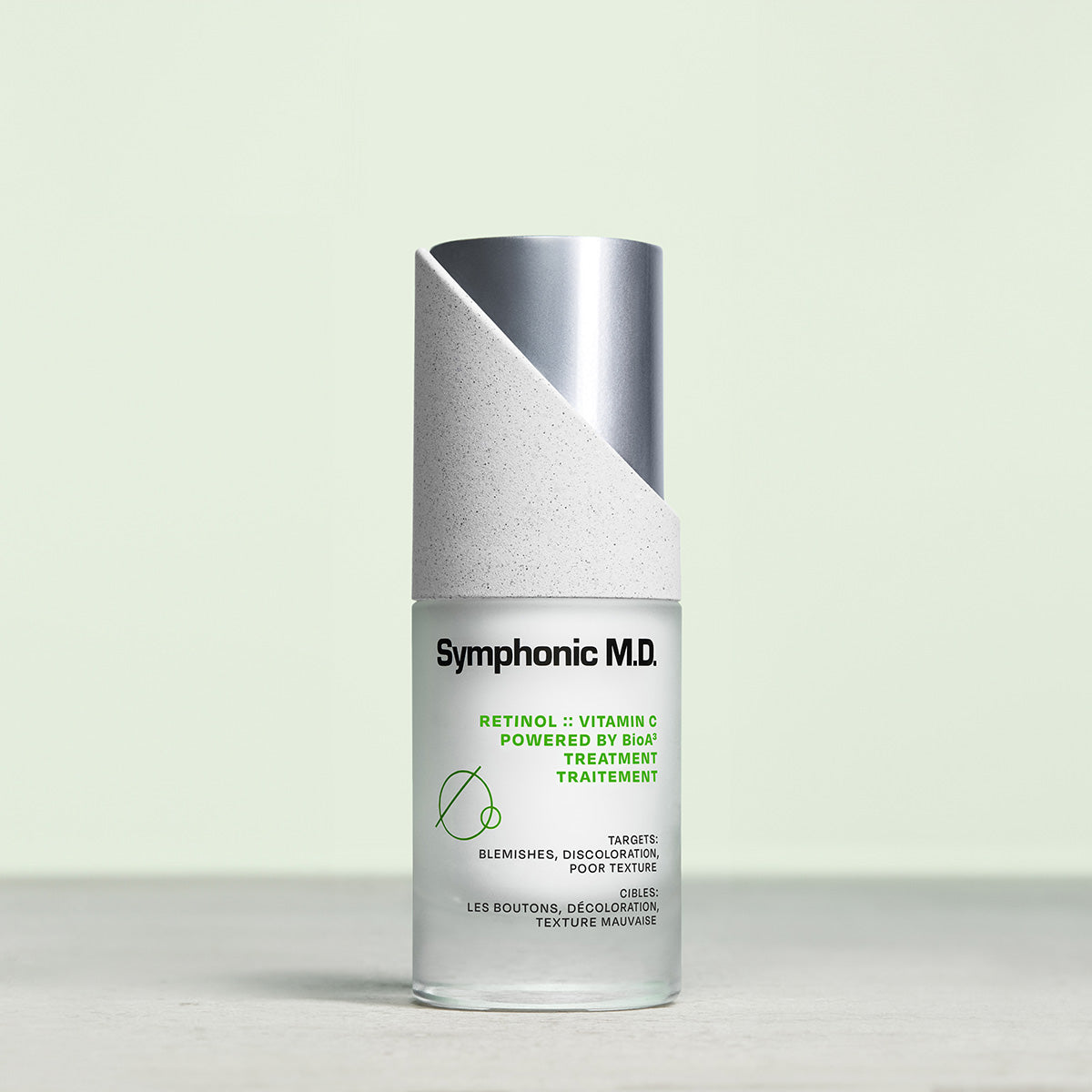
Retinol :: Vitamin C
This anti-inflammatory serum powered by BioA3 targets blemishes, tone, and texture — helping to clear bacteria and smooth skin without clogging pores.
It’s designed to target fine lines, wrinkles, dullness, and aging skin — as well as protecting against bacteria, reducing blemishes, and giving you a silk-smooth skin texture.
Best of all, the proprietary BioA3 formula rehydrates the skin and prevents side-effects from the powerful active ingredients, while ensuring the stability, enhancement, and efficacy of the retinol and vitamin C.
Vitamin C and retinol are powerful skincare ingredients just on their own. But when they’re combined, you get even better results.

What makes our Retinol :: Vitamin C Powered by BioA3 Treatment moisturizer special
The new Retinol :: Vitamin C Powered by BioA3 Treatment moisturizer is the first ever to combine retinol and vitamin C in a single product. It’s been tested extensively, including on sensitive skin, and proven to get results without irritation.
How do we make the magic happen? It’s all thanks to the two active ingredients, combined with our powerful bio based pro-retinol derivative.
- Retinyl Sunflowerate is a unique combination of retinol and natural fatty acids from sunflowers. It helps to unclog pores, exfoliate, smooth skin, and treat blemishes.
- Tetrahexyldecyl Ascorbate is an oil-soluble form of vitamin C that gets absorbed deep into skin. With excellent absorption properties it helps stimulate collagen synthesis, build density and fend off free radical damage to protect cells.
Why use vitamin C and retinol together?
Vitamin C and retinol are powerful skincare ingredients just on their own. But when they’re combined, you get even better results. The two ingredients can actually amplify each other’s strengths.
The benefits of combining retinol and vitamin C
Vitamin C and retinol work together to protect and renew your skin on every level.
Improved skin texture and tone
Both vitamin C and retinol can reduce hyperpigmentation and give you brighter skin.
Retinol exfoliates skin to clear away dead skin cells and stimulate new cell growth. Meanwhile, vitamin C can fade dark spots. Result: glowing, fresh skin that’s perfectly clear.
Enhanced collagen production
Vitamin C protects and supports collagen production, while retinol boosts collagen levels. With more collagen, you’ll see firm, elastic skin that stays plump and smooth.
Increased protection against environmental damage
Vitamin C defends skin from sun damage and free radicals on the surface, while retinol works deep inside the skin layer to strengthen and renew cells.
Combating signs of aging
Retinol causes faster cell renewal, while vitamin C protects new skin cells from damage. A combination of healthy cells and increased collagen adds up to young skin without wrinkles, fine lines, or sagging.
Reduced acne and blemishes
Retinol is a powerful weapon against blemishes: it clears away dead skin, regulates sebum (oil) production, and keeps pores clear. Meanwhile, vitamin C controls redness and inflammation, reducing the impact of any breakouts. The two ingredients together reduce the chance of acne and scarring.
The bottom line
Retinol and vitamin C are skincare superheroes. But when they work together, they’re more powerful than ever. Our Retinol :: Vitamin C Powered by BioA3 Treatment moisturizer is the first product to give you the best of both ingredients, while hydrating and protecting skin.
